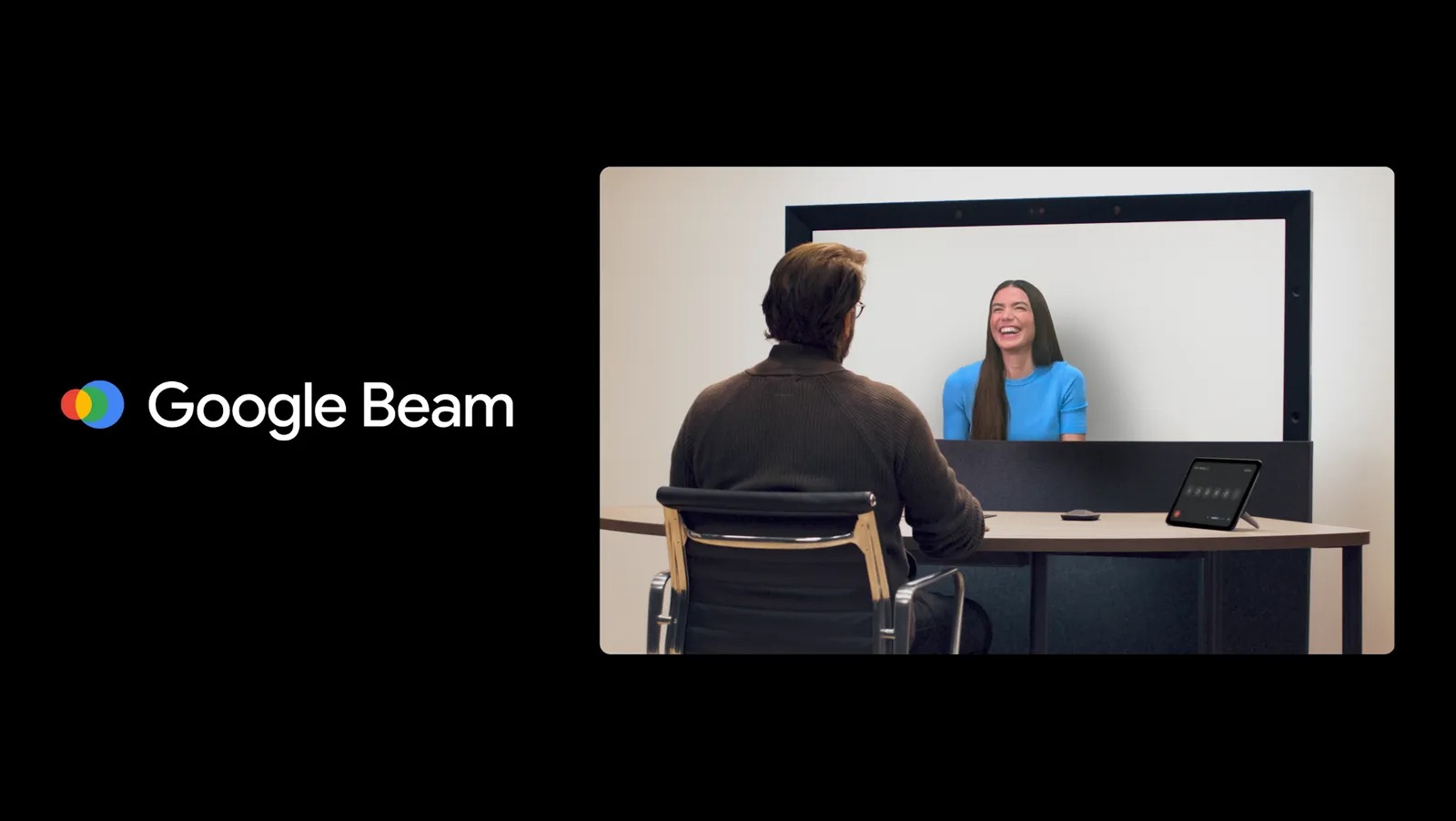At the Google I/O 2025 conference, the tech giant unveiled a suite of groundbreaking AI-driven innovations, signaling a transformative shift in how users interact with technology. Among the most notable announcements were the introduction of Google Beam, an evolution in video communication; real-time translation capabilities in Google Meet; and the integration of Project Astra, a proactive AI assistant, across various platforms.
Google Beam: Revolutionizing Video Communication
Formerly known as Project Starline, Google Beam represents a significant leap in video conferencing technology. This AI-first 3D video communication platform utilizes advanced AI and computer vision to convert standard 2D video streams into immersive 3D experiences, allowing participants to feel as though they are sharing the same physical space. By employing state-of-the-art AI volumetric video models, Beam captures and renders realistic depth and spatial cues, enhancing the naturalness of remote interactions.
The platform is designed to facilitate more meaningful connections, whether for personal conversations or professional collaborations. By eliminating the need for specialized glasses or headsets, Beam ensures accessibility and ease of use, setting a new standard for virtual communication.
Google Meet: Real-Time Translation with Voice Preservation
In a bid to bridge language barriers, Google introduced a real-time speech translation feature in Google Meet. Leveraging the capabilities of Gemini AI, this tool translates spoken language into the listener’s preferred language while preserving the speaker’s voice, tone, and expression. Initially supporting English and Spanish, the feature is set to expand to include Italian, German, and Portuguese in the coming weeks.
This innovation allows for seamless, natural conversations between participants of different linguistic backgrounds. By maintaining vocal nuances, the translated speech feels authentic, enhancing the overall communication experience. The feature is currently available in beta for subscribers of the AI Pro and AI Ultra plans, with broader availability anticipated in the near future.
Related Posts
Project Astra: The Proactive AI Assistant
Project Astra, developed by Google DeepMind, represents a significant advancement in AI assistant technology. Unlike traditional assistants that respond to explicit commands, Astra is designed to proactively assist users by understanding context and anticipating needs. It achieves this through multimodal capabilities, integrating visual, auditory, and contextual data to provide timely and relevant support .
For instance, Astra can observe a user’s activity, such as working on a document, and offer suggestions or corrections without being prompted. It can also access various Google services, including calendars and emails, to provide reminders or schedule adjustments. In demonstrations, Astra showcased its ability to control Android devices, adjust settings, and even make phone calls autonomously .
While still in the prototype phase, Astra’s integration into products like Google Search and the Gemini AI app indicates a future where AI assistants are more intuitive and seamlessly integrated into daily tasks.
Gemini 2.5: Advancing Towards Artificial General Intelligence
At the heart of these innovations lies Gemini 2.5, Google’s latest AI model. This iteration boasts enhanced reasoning and problem-solving abilities, bringing the company closer to achieving Artificial General Intelligence (AGI). Features like “Deep Think” enable the AI to simulate human-like deliberation, breaking down complex problems into manageable steps
Gemini 2.5’s capabilities are evident in its integration across various Google services. In the Chrome browser, Project Mariner utilizes Gemini’s reasoning to automate tasks like searches and purchases. In Workspace, Gemini enhances Gmail with AI-generated Smart Replies that mimic the user’s tone, and in Google Meet, it powers the real-time translation feature.
The model’s proficiency in understanding context and providing personalized assistance underscores Google’s commitment to developing AI that is not only intelligent but also empathetic and user-centric.
Android XR Smart Glasses: A Glimpse into the Future
In addition to software advancements, Google unveiled its Android XR smart glasses, developed in partnership with eyewear brands Gentle Monster and Warby Parker. These glasses integrate with Gemini AI to provide real-time information overlays, navigation assistance, and language translation, all within the user’s field of vision.
The demonstration highlighted practical applications, such as receiving directions, translating conversations in real-time, and accessing contextual information without the need for a separate device. By merging AI with wearable technology, Google aims to create more immersive and intuitive user experiences.
Conclusion
Google I/O 2025 showcased the company’s ambitious vision for the future of AI integration. From transforming video communication with Google Beam to breaking language barriers in Google Meet, and introducing proactive assistance through Project Astra, Google’s innovations are set to redefine user interactions with technology.
As these technologies continue to evolve and integrate into daily life, they hold the promise of making digital experiences more natural, intuitive, and human-centric. With a focus on empathy, context-awareness, and seamless integration, Google’s AI advancements are poised to usher in a new era of intelligent assistance.
